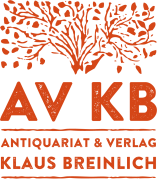MEURER,C., Der Begriff und Eigenthümer der heiligen Sachen. 2 Bde. Düsseld. 1885
Der Begriff und Eigenthümer der heiligen Sachen, zugleich eine Revision der Lehre von den juristischen Personen und dem Eigenthümer des Kirchenguts. 2 Bde. (in 1). Düsseldorf, Verlag von Felix Bagel, 1885.
8vo. 5 Bll., 347; 3 Bll., 456 S. Neuer Halbleinen. (St.a.T., Tb. an der Bindung leicht ausgebessert).
Habilitationsschrift, verfasst an der Universität Breslau. – Meurer (1856-1935) war Kirchen-, Staats- und Völkerrechtler. Er studierte zunächst Philosophie, danach die Rechtswissenschaften. 1882 erfolgte die Promotion, 1885 dann die Habilitation in Breslau. Im Jahre 1888 folgte er einem Ruf als außerordentl. Professor nach Würzburg, 1891 wurde er schließlich dort zum o. Professor für Katholisches Kirchenrecht und Völkerrecht berufen. Er blieb in Würzburg bis zu seiner Emeritierung im Jahre 1926. Während Meurer bis zur Jahrhundertwende vor allem als Kirchenrechtler hervortrat, wechselte sein Schwerpunkt danach eher in den Bereich des Völkerrechts. Sein zweibändiges Werk zur Haager Friedenskonferenz und zur Haager Landkriegsordnung war die erste große rechtswissenschaftliche Analyse (erschienen 1905 und 1907).
Order Number: 17028AB
Rare Book: EUR 100,--
